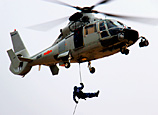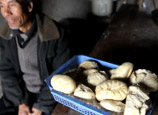
Fiscal conditions and public debts in Latin America appear to be better than those in EU, but poverty continues to trouble most countries.
According to figures from the Economic Commission for Latin America and the Caribbean (ECLAC), at the end of 2012, poverty-stricken population in Latin America was 167 million, around a million less than that in 2011, but still accounting for 28.8 percent of the region's total. Among them, 66 million live in extreme poverty.
Latin American countries, especially those in South America, have achieved high growth rates by re-orienting their commodities exports, such as copper and food, toward China and the rest of Asia. In fact, China is the region's second biggest trade partner, and the largest trade partner of Chile and Brazil.
The EU currently has a lower economic growth rate than Latin America, and that opens new opportunities for European exporters. The European market is also an attractive destination for Latin American and Caribbean products.
Mutual investment is another important issue, with European investment in Latin America in 2011 totalling 613 billion U.S. dollars, mostly in the areas of environmental preservation and climate change.
Latin American companies are gradually increasing their investment in Europe.
One of the critical issues of the strategic alliance is the reinforcement of business cooperation and the elimination of trade barriers, which will help reduce food prices, a global problem.
Chilean Foreign Minister Alfredo Moreno underscored the importance of the first summit between the Community of Latin American and Caribbean States (CELAC) and EU, saying that "We have never in our history had an international gathering of such magnitude and I think we should make the most of it."
Some 40 heads of state and delegates from 60 countries are expected to attend the summit and, according to the general director of Chile's Military Police, Gustavo Gonzalez Jure, 5,000 police officers will be deployed to ensure security.
"A selected group of (VIP) police will be in charge of guarding the leaders who will visit Chile," said Gonzalez.
Police will work with vehicles equipped with satellite systems to monitor security cameras at key locations in Santiago, he said, adding police sharpshooters will also be deployed at key sites and two helicopters will escort the leaders when in transit.
The CELAC-EU summit will be followed by a CELAC summit on Jan. 28, also in Santiago.

















 Going back home: A standing journey
Going back home: A standing journey


![]()
